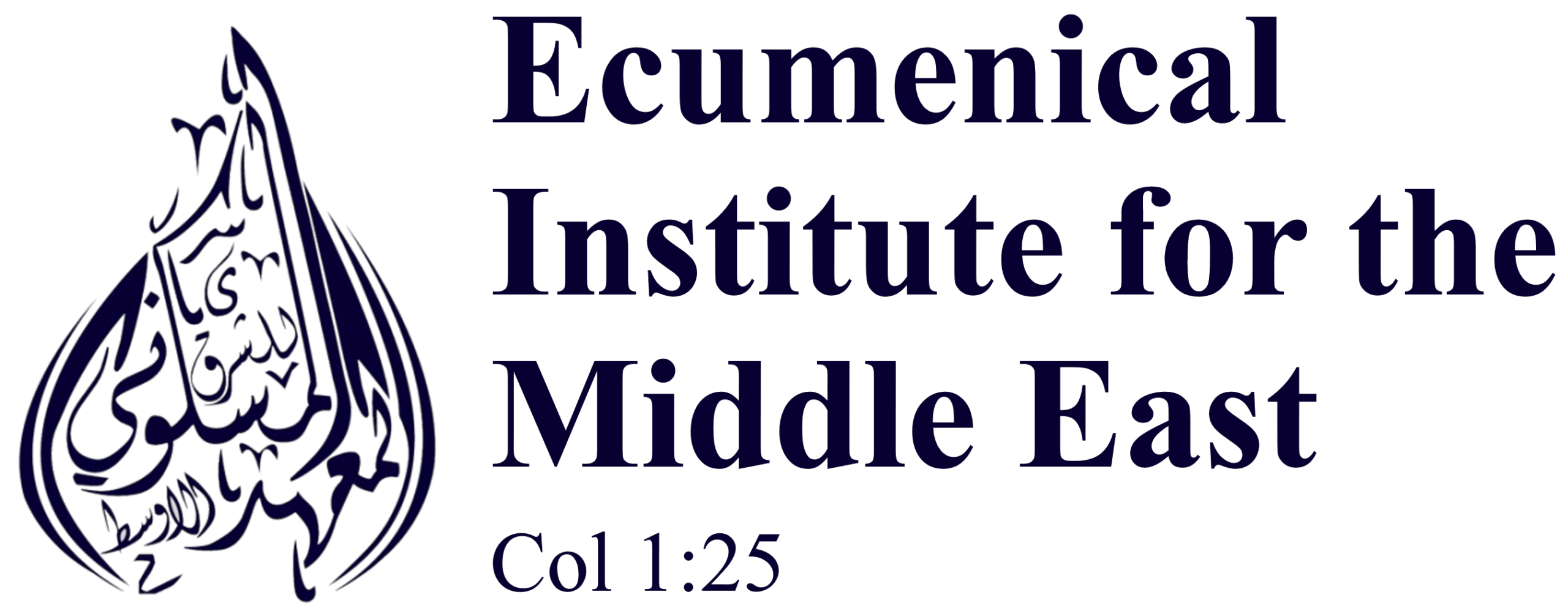The Institute
Mission
The mission of the Ecumenical Institute for the Middle East is the ecumenical formation and training of young Christians as a contribution to the Middle East Church’s own mission of seeking to reinstate church unity through the unification of visions, perspectives and attitudes relating to Christian presence and witness in the region and to inter-faith dialogue, especially Muslim–Christian dialogue and relations.
Vision
The purpose of the Institute is to promote “ecumenical training and interaction with the youth, the students of theological institutes and colleges, and the churches” in view of deepening the spiritual fellowship among the churches of the Middle East, and contribute to uniting them in word and deed through love and sharing, striving to bring peace and justice throughout the region.
The Institute facilitates communion between young members of the four families of churches in order to remove prejudice and barriers between them by providing an adequate space to come together, live, share, pray, and reflect, and act and witness together. It also develops positive attitudes towards people of other faiths by advancing dialogue and partnerships to deepen friendship and peace between people for the good of all humanity.
Principles and Values
- The Institute’s vision and mission stem from its Christian belief that all human beings are created in God’s image, with equal rights and responsibilities as citizens of the one country and members of God’s household.
- The foundation of the Institute’s work are the Gospel values of:
- Love and sharing: God’s love for all of His creation as manifested in the Lord Jesus Christ.
- Justice and Peace: Witnessing to Jesus Christ’s teachings for the fulfillment of justice, so that civil, political, economic and social rights be realized, and peace prevails.
- Participation: God gives all human beings responsibility for their own lives and for building a just community/society to live in, for life in abundance.
- Integrity of Creation: God gave the earth and its resources to all mankind to be preserved for future generations to enjoy.
Approach
The Institute works with the churches and for the churches because it is concerned with the many challenges facing the region, the churches, and Christian presence and witness. It pursues efforts to witness to Jesus Christ for a just and integrated society where mutual respect and understanding prevail. The following are major approaches pursued by the Institute in its work:
- Partnering: Working in close partnership with all those who share and support the Institute’s mission, principles, values and goals.
- Holistic: Reflecting God’s concern for the human being, the whole human being, and all human beings.
- Integrated, Comprehensive and Sustainable: Developing programs and curricula that are sound, manageable, sustainable, and respond comprehensively to current challenges facing Middle Eastern societies and Christian presence and witness.
- Advocating: introducing and promoting ideas that change thought patterns and attitudes. Therefore, speaking out in unity to uphold Christian beliefs, views and perspectives, challenging structures of injustice and oppression, and communicating the role and importance of the churches and the Christian community in shaping the Middle Eastern civilization and society past, present and future.
- Empowering: “The dignity of a person appears in his/her ability to stand alone, resist, differ, and defy.” Empowering the Institute’s participants to be able to respond ecumenically to the needs of the needy and marginalized in their respective churches/communities/societies, and address the various challenges faced by them as a result of the prevailing situation.
- Professionalism: Striving to achieve the highest standards of professionalism, transparency, accountability and performance, with the purpose of working effectively, with proficiency and credibility.
